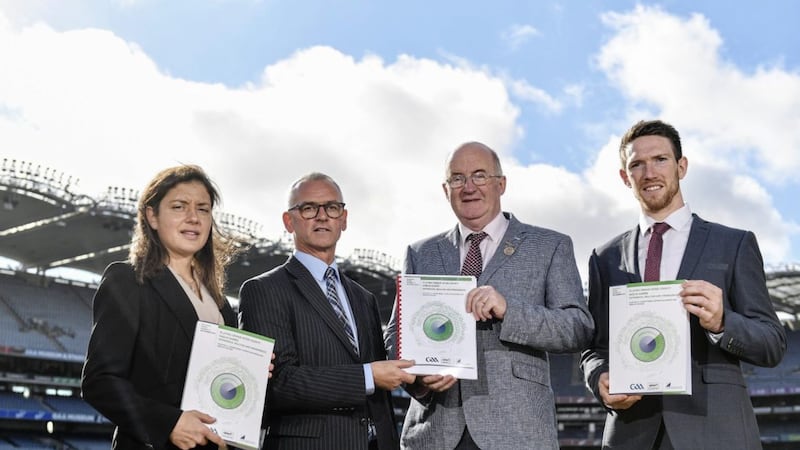A MAJOR report into the effects of playing inter-county Gaelic Games has revealed that players’ mental well-being is not as healthy as for the general population in Ireland, and says the issue of the level of commitment required by players “needs to be addressed.”
The ESRI study, conducted in conjunction with the GAA and GPA, received 1,037 responses to their survey from inter-county players that were active during the 2016 season.
The report found that players were concerned by the level of demands being placed upon them and called for solving the issue to be considered “from the viewpoint of safeguarding not just these players’ welfare, but the welfare future generations of players as well.”
Comment: Report tells us nothing we didn't know - but gives GAA a real chance to act
The research was primarily conducted via the survey of 2016 players and four provincial workshops in the spring of 2017, with a random selection of players from the previous year.
In order to evaluate players’ mental health, the World Health Organisation Five Well-Being Index (WHO5) was also included. It is a self-reported measure that captures an individual’s well-being over the previous two weeks, and was taken by players between May and August 2017.
It asks respondents to score between 0 (‘at no time’) and 5 (‘all of the time’) on five measurements, such as being ‘calm and relaxed’, and their ‘daily life filled with things that interest me’.
On average, the inter-county players who responded to the survey scored 64 out of 100, which is 14 units above the threshold value of 50 that has been identified as the level at which individuals are at risk of depression.
However, the study notes that “when we compare 2016 players’ mental well-being to the general population we find that it is somewhat lower”.
The average score for all males in Ireland in 2016 was 72, and individuals of a similar age (18-34) scored 73 in the European Quality of Life Survey 2016.
“The first important point to note is that only just over a quarter (26 per cent) of players indicated that they woke up feeling ‘fresh and rested’ most to all of the time during the 2017 championship… The comparable figure for the population as a whole of Ireland in 2016 was 57 per cent,” noted the report.
More than three-quarters of players surveyed (76.6%) said that the main downside of playing inter-county GAA was that they had less time to spend with loved ones.
92 per cent of players indicated that they had to reduce the amount of time that they could devote to “their family, partner and / or friends as a result of becoming an inter-county player from a club player only”.
82 per cent of respondents feel too much effort is demanded of them, while more than a third (35.4%) said that their professional careers were being negatively affected.
Tellingly, the report found that of the players that were playing inter-county in 2016, some 600 of them (31 per cent of the playing population) were no longer involved in 2017.
Almost half of those players cited a need to focus on their professional career as the reason for dropping out, while 10 per cent said it was as a result of their “emotional or mental health”.






